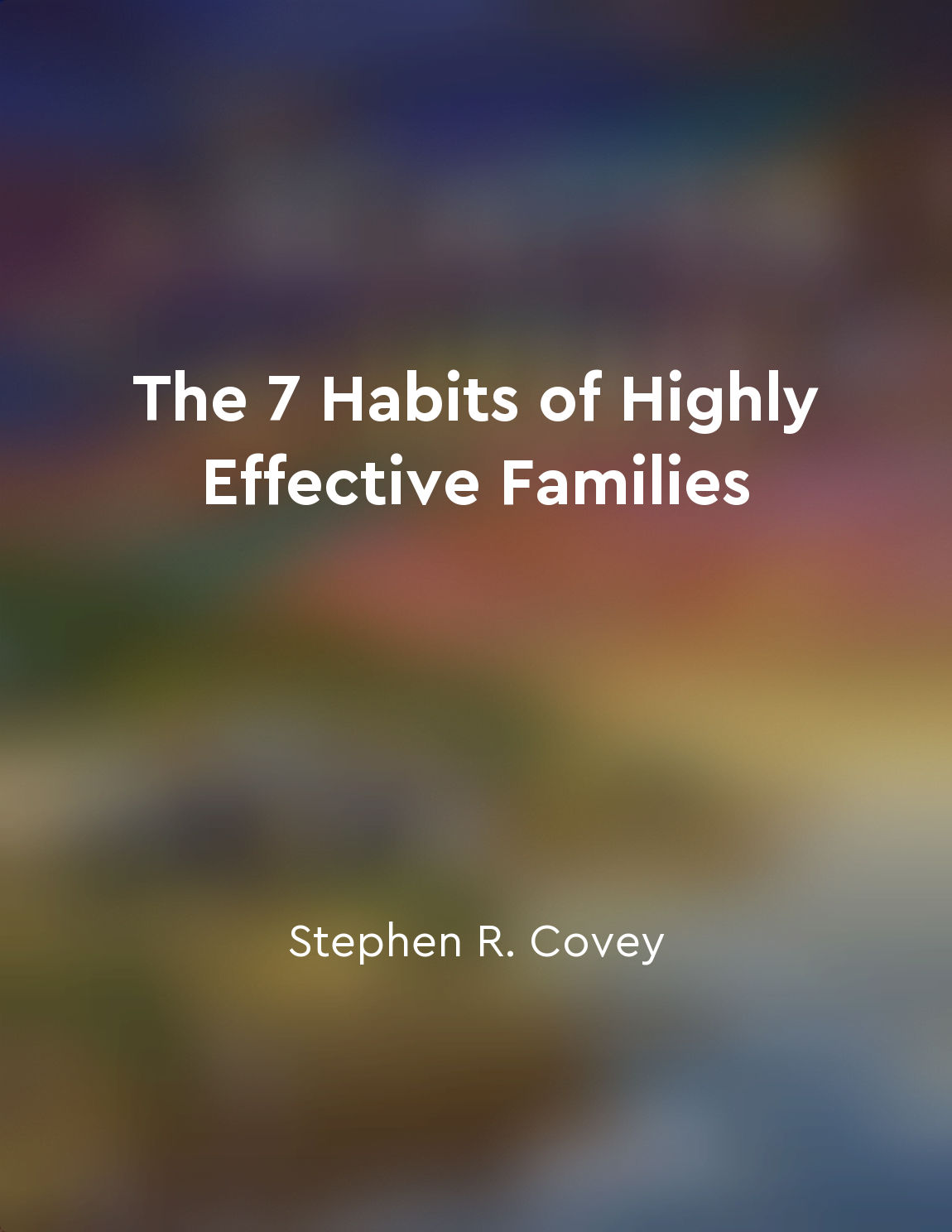Audio available in app
Teach essential life skills early from "summary" of The 7 Habits of Highly Effective Families by Stephen R. Covey
One of the key principles for building highly effective families is the idea of instilling essential life skills in children from a young age. By teaching these skills early on, parents can help their children develop the tools they need to navigate the complexities of life with confidence and competence. Essential life skills encompass a wide range of abilities, from basic self-care and hygiene to more complex interpersonal communication and problem-solving. By teaching children these skills early, parents are equipping them with the necessary foundation to thrive in an ever-changing world. Early exposure to essential life skills also helps children build self-esteem and self-reliance. When children learn how to take care of themselves and solve problems independently, they develop a sense of confidence in their abilities. This confidence serves as a strong foundation for future success in both personal and professional endeavors. Furthermore, teaching essential life skills early can help children develop strong relationships with others. By learning how to communicate effectively, resolve conflicts, and show empathy, children are better equipped to form and maintain healthy relationships with family members, friends, and colleagues throughout their lives. In addition to fostering personal growth and development, teaching essential life skills early can also help children become more resilient in the face of challenges and setbacks. By equipping children with the tools they need to cope with adversity and overcome obstacles, parents are preparing them to navigate life's ups and downs with grace and resilience.- The concept of teaching essential life skills early is about setting children up for success in all areas of their lives. By instilling these skills from a young age, parents can help their children develop the confidence, competence, and resilience they need to thrive in an increasingly complex and demanding world.
Similar Posts
Prioritizing selfcare allows family members to show up fully
Putting yourself first may seem selfish, but in reality, it is essential for the well-being of your family. By taking care of y...
Children learn best when they are interested
Children, like all human beings, learn best when they are interested in what they are learning. When something really interests...
Learning should be personalized for each student
Personalizing learning for each student is a concept that lies at the heart of transforming education. It is about recognizing ...

Engaging with diverse perspectives fosters empathy
Engaging with diverse perspectives is crucial for developing empathy. When we expose ourselves to a variety of viewpoints, we b...

Educational interventions can help children overcome adversity
Educational interventions have the power to make a significant difference in the lives of children facing adversity. By providi...

We must prioritize our relationship with our children
Our relationship with our children must come first. It is the bedrock of their development and well-being. When we prioritize o...
Encouraging problemsolving and decision-making skills
When we create an environment that fosters problem-solving and decision-making skills in our children, we are helping them deve...


